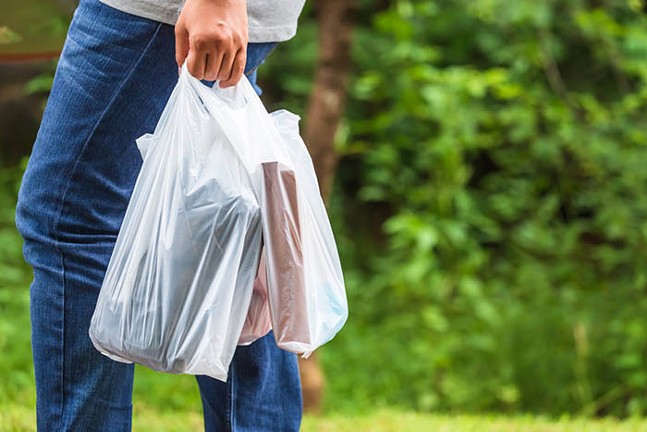Emotions ran high during a recent Allegheny County Council meeting as members accused others of inaction, compared the region unfavorably to other cities, and used terms like “disgusting.” The reason? A debate over a ban on single-use plastics such as those used by grocery stores, restaurants, and retail stores.
During an informational session immediately following the Feb. 15 sustainability and green initiative committee meeting, councilmembers expressing frustration over the lack of movement on a proposed county-wide ban on single-use plastics.
John Palmiere of District 6 said it was his long-held belief that something needs to be done in Allegheny County about the issue. District 11 representative, Paul Klein, agreed, even invoking Pittsburgh’s friendly rival city, Philadelphia, as an example of how to successfully implement a ban.
“In Philadelphia, they’re doing it. Even small mom-and-pop operations are doing it,” Klein said. “If the city of Philadelphia can get their heads around this, I think that we certainly can.”
According to Philadelphia’s muncipal website, the city passed legislation banning plastic bags passed in December 2019. The ban was delayed by COVID-19 but officially went into effect on April 1, 2022.
Other members argued that a ban would be difficult to enforce across the county’s 129 municipalities. Possible problems, members noted, include getting retailers to accept the ban, charging fees on bags, and having the resources — particularly a specially designated department — that would oversee the ban.
According to advocacy group PennEnvironment, around 4.75 billion single-use plastic bags are used across Pennsylvania every year. Besides adding to litter, these bags, if not properly recycled, contribute to the accumulation of particulate microplastics, which have become a health concern over the last several years. Scientists in the United States and across the world have pointed out how humans can consume microplastics that end up in waterways.
In 2021, PennEnvironment released a report titled “Pennsylvania’s Pristine Waterways and Microplastics” that found microplastics in all of the Pennsylvania waterways that were tested. These included waterways that run through Allegheny County, such as the Youghiogheny River.
Pittsburgh had started to see some movement on banning single-use plastics. Local supermarket chain, Giant Eagle, had begun to phase out providing plastic bags to customers, but the effort was sidelined by COVID-19. (The chain has since recommitted to eliminating bags.)
In April 2022, Pittsburgh City Council unanimously voted to “enact a ban on the distribution of single-use plastic bags by retail businesses at checkout or delivery,” according to a press release. The legislation was first introduced in 2021 by City Councilor Erika Strassburger, who was also present at the Feb. 15 county council meeting.
"This landmark piece of legislation will sharply curtail litter, mitigate stormwater risk, reduce the amount of microplastics in our soil and water, improve the City’s recycling efficacy, and begin to break our dependence on fossil fuel-based products,” Strassburger said of the Pittsburgh ban.
The Pittsburgh ban was described as needing a year to take effect as a way to give “both shoppers and retailers ample time to ready themselves for full implementation.”
The Feb. 15 meeting suggested a possible county-wide ban could gain traction, with Anita Prizio, who serves as District 3 representative and chair of the Committee on Sustainability and Green Initiatives, saying, “this is such an important topic, I want to thank all of the council members for being so engaged. I think this is something that we can actually pursue.”
During the meeting, District 12 representative, Bob Palmosina, said, as the director of public works in Collier, he sees litter along roadways as “an ongoing battle.”
“I applaud everything you’re doing here," he said in response to Strassburger. "I agree with Councilman Palmiere – probably most of us – we should try and follow your lead.”


